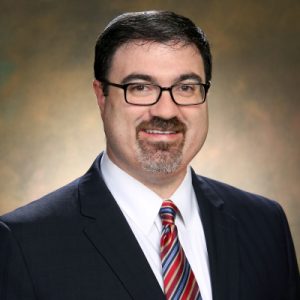My grandmother and I had an incredible relationship. We traveled to Ecuador, Costa Rica, Mexico, and Egypt together. She introduced me to new ideas, books, art, and music. I remember watching world-events on the news and talking about the unfolding of history. She shared the wisdom gleaned from what she had experienced and seen throughout her life. In my eyes, my grandmother’s life was rich. It wasn’t about what she owned, but the richness of the moments we shared and the times we had together. When she died, I wished we had more time. It’s a sentiment that her family and friends expressed over and over again, precisely because of the richness of her life and the ways she shared herself with others.
My grandmother’s death taught me to ask myself important questions: With whom am I connected? What are the causes and purposes that inspire me? What is my outlet for my creativity? Am I growing – becoming wiser, deeper, and more compassionate? And am I sharing my life with others?
The growth of mind and body and soul isn’t easy to do alone. Living life is hard to do, alone. In the book of Genesis – in the story of Adam and Eve – God says that it’s not good for humans to be alone. Yet, our world today seems to reinforce “aloneness.” We often feel enslaved to an American culture that emphasizes ambition, busyness, and superficial interactions. We are pulled by powerful forces of careers, immersive technology, and long commutes. We are often trying to do more with less.
It is through our relationships with others where we create better clarity about our lives. It is through our relationships with others where conversation, learning, spiritual practices that add depth and meaning. This is why I believe that Temple Beth El needs to build a better relational culture that helps us to build deep connections that inspire personal growth and cultivate meaning, so we can transform our understanding of ourselves, our community, and responsibilities in the world. You may have experienced our lay leaders and staff already working towards the development of the relational culture. Here are some important examples already in progress. The links for more information or how you can join in are below.
- TriBE: Find Your People. The development of TriBE – our small group’s initiative. Andy Harkavy is working with Temple an amazing dedicated group of Temple Beth El leaders to launch our TriBe intiative. TriBE’s are small groups of 5-15 people. Formed around interests, geography, demographics or profession –the groups are designed to inspire us and transform our lives and the world around us, with deeper relationships and a greater experience of joy and meaning. Take a leap. Find your TriBE. Find your people.
- Community Organizing. The Tzedek Council and Rabbi Klass have created opportunities and forums for our members to listen, learn, and engage with one another and with the broader community around issues facing our members, our city and our world. Our congregation will continue our long tradition of social justice advocacy and volunteering. And we will do so in a way that builds the power of our community through identifying what is widely and deeply felt, create coalitions for advocacy across lines of difference, and explore ways to make a positive change.
- Hineynu: We Are Here. Beth El is united by a strong community that helps us celebrate, support and console one another. In the coming weeks, our lay leaders are re-developing our caring committee – which is now formally called, Hineynu: We Are Here. If it is raining love and joy in your life, we want Temple Beth El to be there to celebrate. If it is stormy, Temple should be a source of solace and shelter. We can lend a steadying hand or a quiet embrace.
- Youth Listening Circles. We are in the beginning phase of listening to our congregants about youth engagement. Sam Swire, Director of Youth Engagement and the Youth Engagement Committee are working to listen to our members in order to assess the needs and interests of our youth, teens and families with school-age children, in order to vision and set goals and strategies that creates synergy, encourages active Jewish living, builds relationships and connects youth, teens and families to community within and outside of temple. Join us for Youth Listening Circles.
- Core Purpose and Mission. In the coming weeks, Temple Beth El’s Board of Trustees will explore and ratify a newly articulated Core Purpose and Mission. We are keeping the core elements of the previous mission statement, while reframing it in a way that clearly communicates our congregation’s values to members, staff, and the broader Charlotte community. Our Temple President, began to articulate the new Core Purpose and Mission in his High Holy Day President’s Speech. The new Core Purpose and mission will focus on how we build a relational community: learning together through the pursuit of Jewish wisdom; praying together and developing personal spiritual practices and inspiring worship that uplifts the soul and connects to God; acting together through ongoing significant acts of loving kindness and world repair; playing together in fun social settings where people can relax, laugh, and be ourselves; caring for each other by valuing and supporting one another in times of joy and sorrow; and being accountable to each other through shared leadership that serves the individuals’ and community’s best interests.




